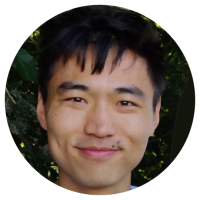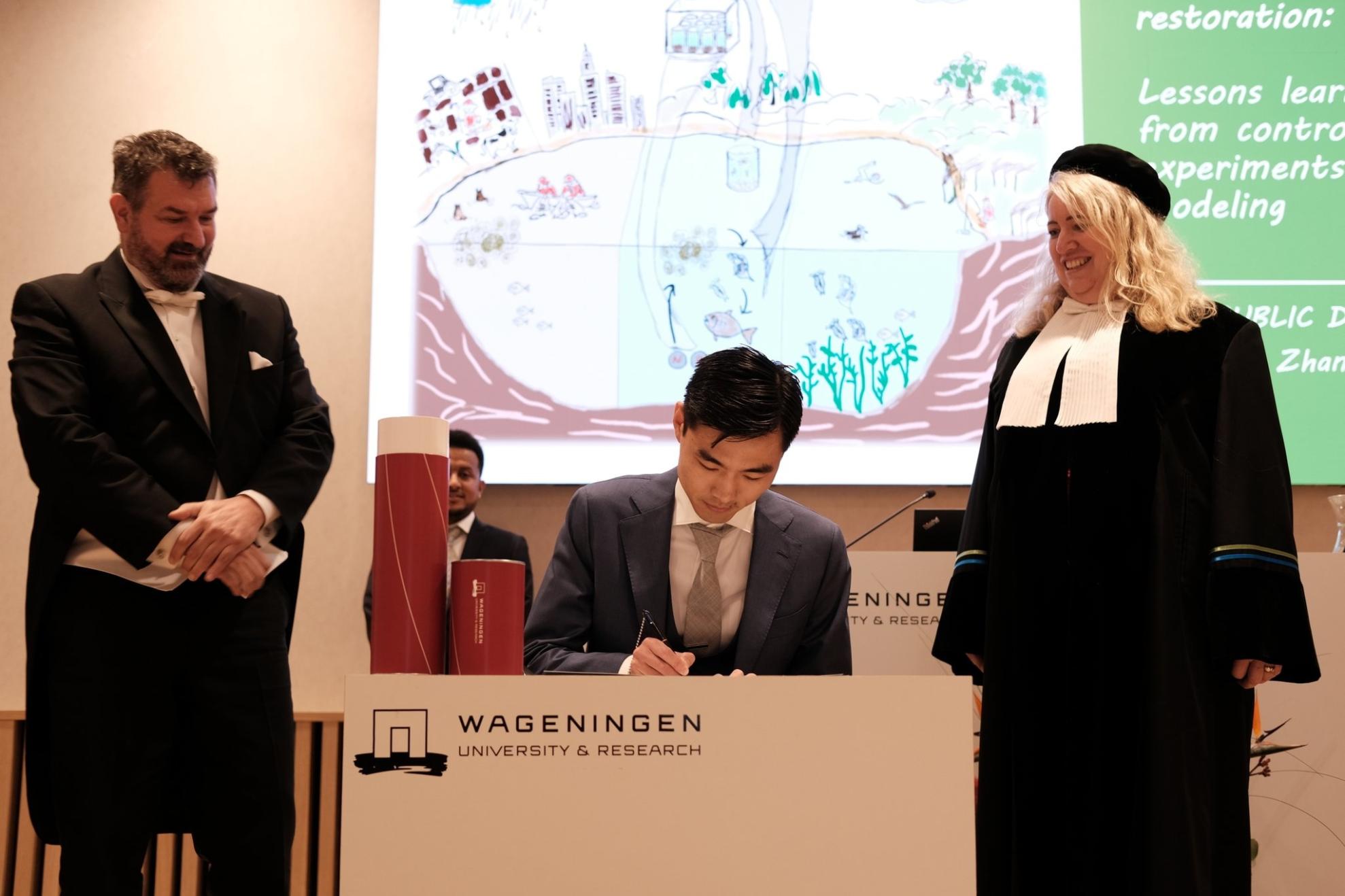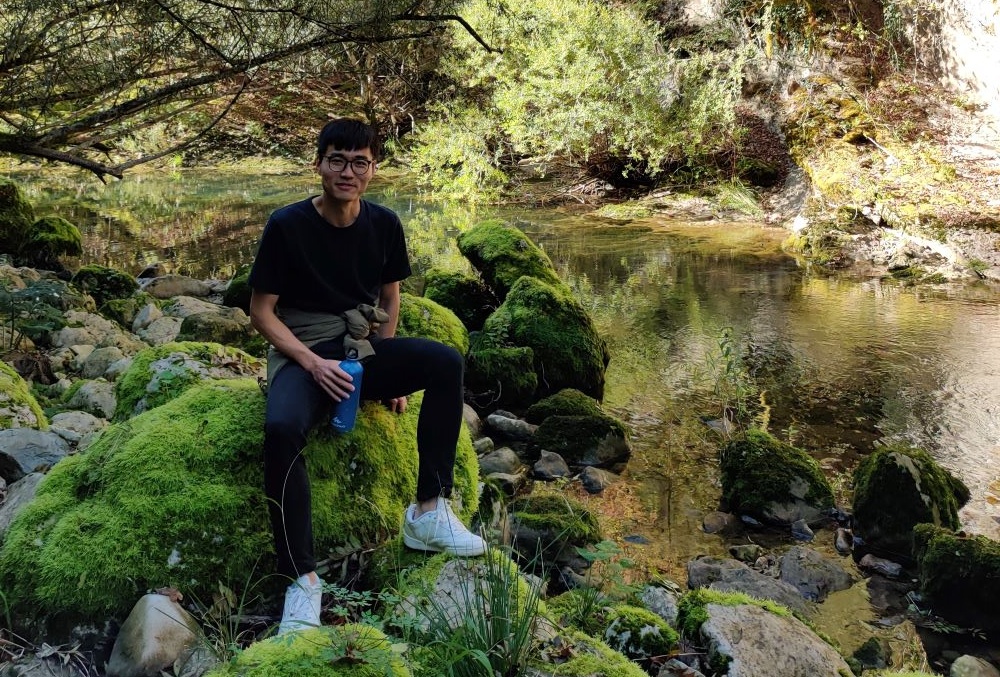28.11.2023 | Interview with Qing - Alumni student of Ecological Engineering and now Postdoc in the Netherlands

Qing came from China to study the unique master’s programme “Ecological Engineering” at the University of Applied Sciences in Magdeburg. He wrote his master's thesis at the Helmholtz Center for Environmental Research in Magdeburg and completed his studies in 2018. Since his heart continued to beat for aquatic ecology, he applied for a PhD position in Wageningen, where he received his doctorate in November 2023. Since December 2023 he has been a postdoc at the Royal Netherlands Institute for Sea Research on the island of Texel. Congratulations on such a research career!
By the way, he won the Otto von Guericke Scholarship in Magdeburg in 2018, which is awarded to particularly committed foreign students.
Interview from 28 November 2023
How did it come that you studied Ecological Engineering in Magdeburg?
I did my Bachelor's degree in Environmental Sciences in China. After that, I decided to do a Master's degree abroad, in Germany. I first went to Berlin to attend a language school and then moved to Magdeburg. My Bachelor's programme in Environmental Sciences was very broad in terms of subject matter. I learnt about all environmental media such as air, water and soil in theory - but I couldn't delve any deeper. That's why I wanted to find a Master's programme that focused more on one type of system/environmental medium and paid more attention to the application aspect of scientific theory.
I contacted the student advisor, Professor Petra Schneider. She was very accommodating and patient and explained everything about the degree programme to me. So it didn't take me long to make up my mind.
How many students were studying Ecological Engineering back then? And how long did you study in Magdeburg?
If I recall rightly, we were about 15 students. It's actually not very big. We had a close relationship with the lecturers and as students we were close to the action. I found that nice.
For the programme itself it took me roughly two years. Furthermore I worked as a student assistant in Helmholtz Centre for Environment Research in Magdeburg for one year.
Where and as what do you work today?
In a few days I will start my new work as a researcher at the Royal Netherlands Institute for Sea Research on Texel Island in the Netherlands. Until November 2023 I was doing my doctorate in Wageningen in the Netherlands. How did that come about? During my Master's degree, I attended a lecture by an external lecturer from the Helmholtz Centre for Environmental Research in Magdeburg. I decided to write my Master's thesis in this lecturer’s working group. During this time, my interest in research and in the field of aquatic ecology grew. So I decided to do a doctorate. During my Master's thesis, we had a postdoc in the working group who came from the Netherlands Institute of Ecology Institute in Wageningen. Then I also had the opportunity to visit this institute and I liked it. For this reason, I started to keep an eye on this institute in Wageningen and was lucky enough to find a PhD position there with a topic that interested me.
How long did it take you to complete your PhD in Wageningen?
II started there in July 2019. Hence, it took a total of four years and another four months.
Can you tell us a bit more about your PhD thesis?
I wrote my doctoral thesis as part of an EU project, Horizon 2020. I didn't bring my own project to this institute, but applied for an existing project. The title of my dissertation project was "Towards climate-robust aquatic ecosystem restoration: lessons learned from controlled experiments and modeling". It was about lake restoration with a focus on eutrophication control and how climate change may interfere with our current restoration measures. Many of our freshwater lakes, especially those situated in urban areas, are exposed to excessive nutrient pollutions, leading to water quality deterioration (also termed “eutrophication”), hampering their capacity of sustainable provisioning of ecosystem services to human and nature. Some measures have been developed targeting eutrophication, but it remains a question how effective these measures are under a changing climate with more disturbance of extreme climatic events. To answer this question, my project used controlled experiments and modelling tools as the research methodology. Our results suggest that climate change is hampering the success of eutrophication control measures, and there is a space in our restoration activities to reach an optimum outcome given the same inputs.
What did you like about your doctorate?
It was a similar experience to the one I had at the Helmholtz Centre for Environmental Research in Magdeburg. I met a lot of open-minded people. The environment is very inclusive and people from different backgrounds are welcome. That's why I immediately felt very comfortable at the Netherlands Institute of Ecology in Wageningen. And in terms of the work: I found it attractive that there was a high degree of freedom to explore and pursue my own research interests and unanswered questions.
What difficulties did you encounter during your dissertation?
It was the time of the pandemic, which was definitely a challenge for everyone. I was able to experience the difference between the pandemic and post-pandemic period and would have loved to live in the post-pandemic period all the time. Especially for international students it is very challenging to be very far away from your family during this special period.
How has studying Ecological Engineering helped you in your professional life? What skills / ways of thinking do you benefit from now?
The first thing that I remember from my Master's programme time is a project assignment, where we had to work with other fellow students in a small group to complete the tasks together, write a common report and present it together. This experience not only taught me scientific and practical aspects, but also how to work in a team, how to collaborate closely with others to achieve a common goal. This helped me a lot for my research during my PhD, where I also had to work with different stakeholders and colleagues.
A second thing I benefited from were the many excursions offered during our Master's programme, which gave us the chance to gain insights into different sectors. For example, we visited a wastewater treatment plant and a recycling company. All these visits gave me a very broad picture of what I could do in the future.
What should be considered in the teaching of Ecolological Engineering at present? Which skills and which knowledge should be taken into account?
The strength of this Master's programme lies in its objective of integrating ecological thinking into the real, evidence-based or knowledge-oriented implementation of various engineering activities. In my opinion, this is very valuable and an aspect that is often missing in the field of ecological restoration. We gained a lot of practical insights, for example through the excursions I mentioned and also by inviting external lecturers with a rich experience in various fields.
Based on my personal experience, I have been thinking about what more the Master's programme could include. For example, I think during the Master's programme, students should gain enough knowledge about climate change and how to take these aspects into account when implementing different engineering measures. And then I would also suggest further promoting international expertise. Even though I say this as a former foreign student, German students can also benefit a lot from this. This can help them to participate more actively in international projects or to network more closely with other international scientific communities. This can contribute to increasing visibility and thus the impact of research results. And international projects can make this Master's programme better known to a wider public.
What advice would you give to students of Ecological Engineering?
The first thing I would mention is the opportunity to do internships. I think the Master's in Engineering Ecology covers so many different aspects and sectors, that it is worth exploring these areas further, whether it suits your interests and preferences or not. These internships and excursions give you some idea of what the work or research looks like.
The second thing that comes to my mind is to use the network that the lecturers and the head of the Master's programme have established with very different people and institutes. For example, I got to know my Master's thesis supervisor during his guest lecture and made first an internship at the lecturer’s institute.
And the third aspect has more to do with my own experience as an international student. There are a number of scholarships that support international students. But this is also interesting for German students, for example the DAAD scholarships, which for instance support Master's students to do an internship abroad. This is something to keep an eye on and prepare for so that you know what aspects you need to improve in order to be eligible for this scholarship.
What do you (yourself) wish for the future (with ecological engineer’s glasses)?
My instinctive motivation which brought me all the way here is the vast urbanization process, –including my homeland country - China, resulting in serious pressures on our ecosystems. I decided to dedicate myself in searching for a more sustainable way of living with our ecosystems. I envision my research contributing to a more sustainable society that lives in harmony with nature, with a beautiful environment that is enjoyable not only by humans but also by other organisms. And when we talk about the future, we know that the climate is changing and that we can expect more extreme climate conditions in the future. We shouldn't wait to act until it's too late. We should deepen our knowledge on climate change impacts and adapt our management activities based on this updated knowledge. We should continue to expand and share our knowledge with various stakeholders, especially with policymakers to ensure evidence-based decision-making. Research plays a really important role in supporting a society towards a sustainable and diverse future, not only for ours, but also for future generations.


| Voriger Beitrag | Zurück zur Übersicht | Nächster Beitrag |

